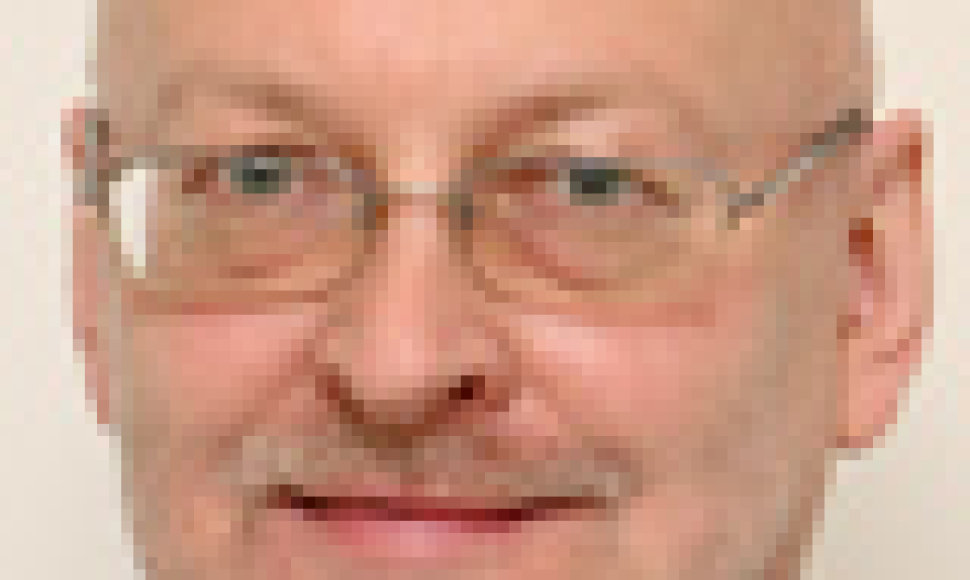And yet, out of pure habit, we still think about everything as if Lithuania and Lithuanians were, somehow, an eternal thing.
Basketball fans daydream by pointing at U20 team's victories, politicians design nuclear power plants and other constructions of the century, teachers and local communities fume over schools getting closed down (as if a school could operate without children – who aren't there and won't be), nationalists fight with Poles like in the inter-war days or crusade against immigration – as if we had other options.
That Lithuania is eternal has never been a solid axiom. On the other hand, it is a proven theorem that project “Lithuania” is on the path to doom – only we refuse to see this, turning our heads away from history lessons and bury them in sand.
If it weren't for an excellent road network, forests, and three cities, Lithuania would already look not much different from the Sahara Desert, where the population density is one person per square mile. In Marcinkonys eldership, the population density is almost desert-like: 1.8 people per square kilometre.
Over the coming years, some 300 schools will be closed down, out of 1,300.
In some areas, two thirds of the population are retired people. Several years ago, there was only one eldership in the country with not a single birth over the year. Now, there are seven. Lithuanian lands are turning into the realm of death.
Over the coming years, some 300 schools will be closed down, out of 1,300. The state budget will be relieved of 80-million-litas expenses a year it spends on supporting public schools – the kind of saving that even the tight-fisted Finance Minister Šimonytė shouldn't be gloating about. One closed schools means minus 3 million litas but also almost one thousand pupils. 5 thousand teachers will lose their jobs over the coming years.
These figures are public information. And since general election is near at hand, there can't be a better moment for political parties and the swollen ranks of “new-wavers” to clash their swords in a debate over the most crucial existential issue concerning the state and the nation.
But what are we discussing instead? The glorious nuclear future. Referendum that won't decide anything. Events on Klonio street. How many percent of the vote will go to the Knyaz from Kėdainiai and the most important aunt in Lithuania. Why no one ever talks about what is essentially the foundation of our very existence? Who is afraid to face the truth about the real future of Lithuania?
The list is long. Let's start with the President, all ruling parties, and the opposition. All the new saviours who are trying to hide from the appalling demographic situation in a spot as close as possible to the feed-trough of power. The most criminal silence is the one by the parliamentary opposition and all those “new-wavers,” since their attempts to convince us that all evil comes from those currently in power – and all it takes for us to live happily ever after is a change in government – prevent the society from seeing the true situation.
The list continues with receivers of welfare benefits that perverted and suffocated Lithuanian towns and villages. Pensioners who, justifiably or not, believed they deserved to live more.
State officials who, in general, think only of what to do today and for themselves. School teachers and headmasters who forget that schools can only work where there are children.
Young people who think that everything is still ahead for them – but it is forgiveable in their case. Who else should celebrate and enjoy life if not young people.
The list goes on and on, running through all social classes, professions, and age groups. Pre-election scandals and post-election intrigues draw attention away from dwindling birth rates or deserted regions.
We are flooded with excessive information, a piece of news stays alive for a day or two and then disappears in the abyss of forgetfulness, out of the consciousness that only knows how to seek pleasure. But we didn't lose our sense of perspective today.
The principle of seizing the day and living at tomorrow's expense – since intricate financial instruments have made possible stealing from future generations that might not even come to be – has become the guiding principle for all governments as far back as 1992.
This is the worst form of dependence not only in Lithuania but in the entire Christian world, since it takes a future away from societies.
Why bother pondering on the fact that Lithuania will die off – it won't after all, happen today or tomorrow – if you've just made plans for a weekend trip to the country, bought a new car, had your project to squeeze more money out of the EU approved? After all, what matters is winning one more term in Parliament.
A society afflicted by this kind of dependence is prone to thinking that what it needs for salvation is more good news. For others to stop interfering with their celebrations and getting high. To not be forced to solve existential issues that naturally arise to every nation, state, to Europe, the mankind. The hell with problems! Pleasure and good humour at all costs.
Hence the incredible hatred, almost beastly desire to silence the few individuals who insistently nag that life at the expense of future generations is coming to an end. That's nothing new either. The ancient cultures had a story about a messenger who was killed because he brought bad news. And so there are too many people in present-day Lithuania indignant about the media not bringing any good news.
On the other hand, one must understand those who fear the truth about Lithuania's real situation. We are all afraid of death. Thinking about death is not the easiest task. And if you are used to counting time in four-year parliamentary terms, it is technically impossible.
Perhaps it would indeed be better just to forget what you cannot change? Indulge in one more pre-election scandal and post-election intrigue. Let's celebrate – while we're still living.













